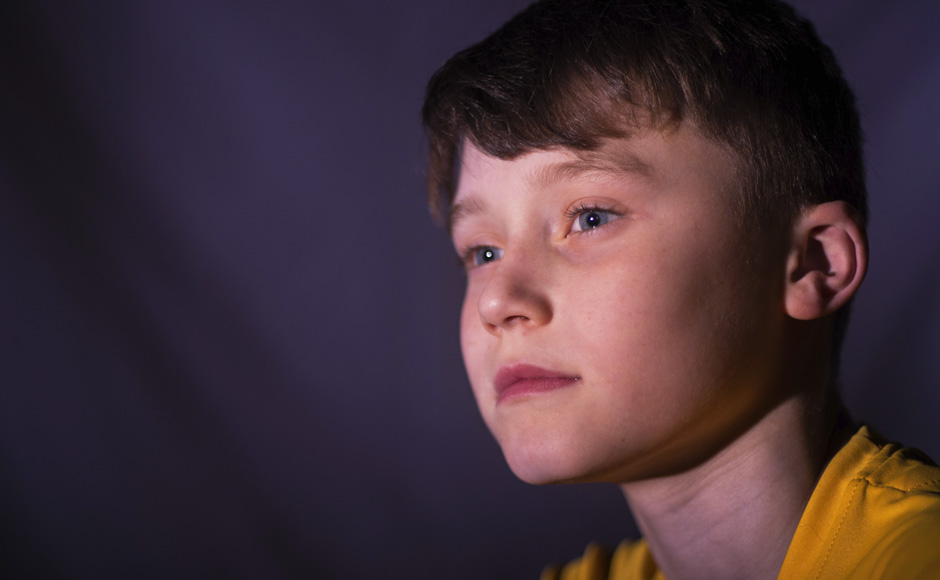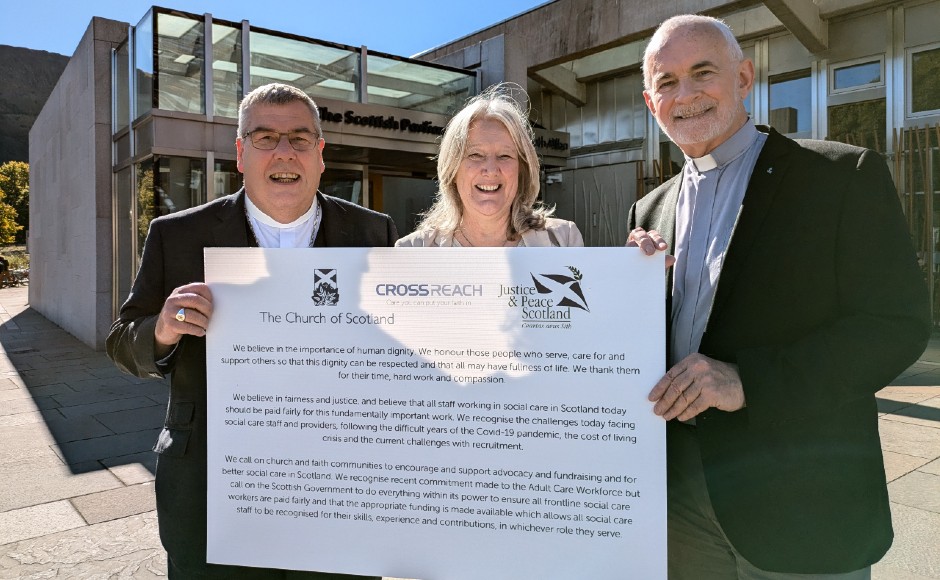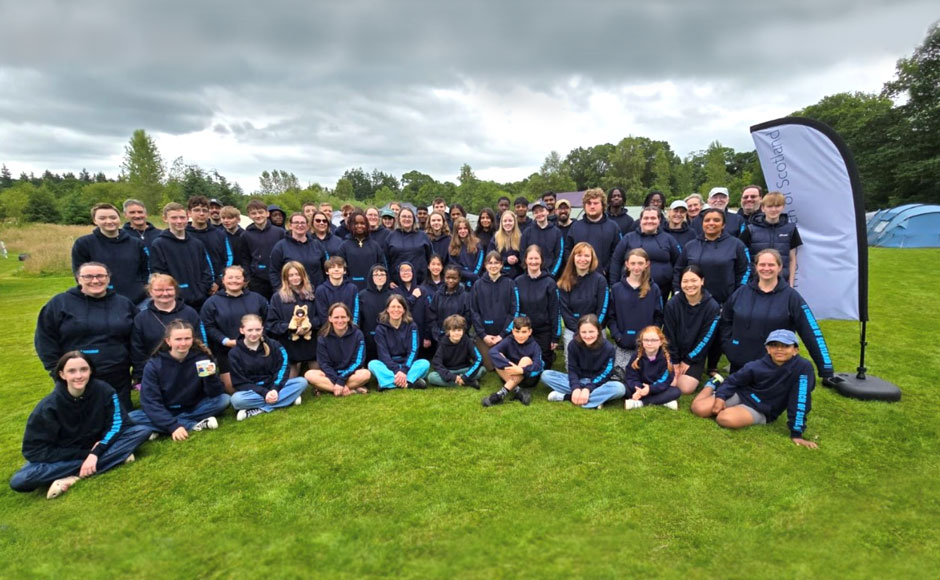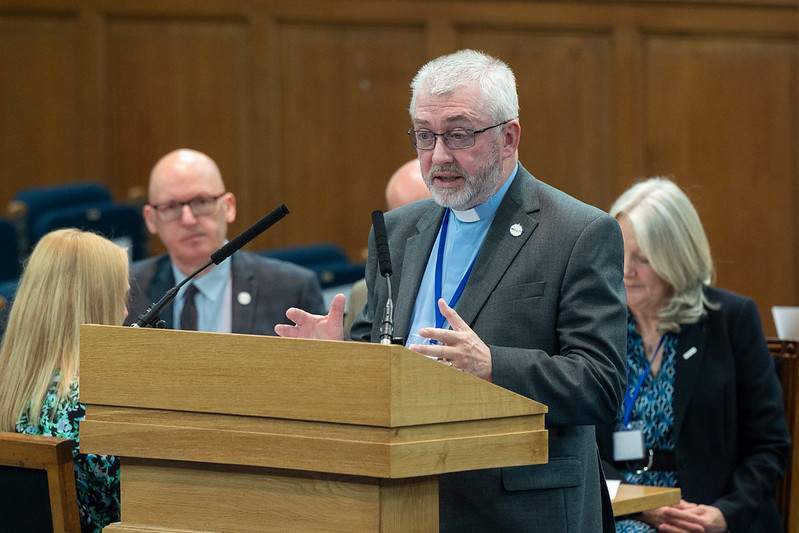CrossReach condemns attitudes to children in care
Published on 29 January 2020
Paul Gilroy, Head of Service (Children and Families) for the Church of Scotland's care arm, CrossReach, has written a blog post criticising the attitudes of some communities and local authorities to children in care, describing it as "at worst, amounting to discrimination". Here, we are publishing his blog post in full.

In Scotland we like to believe we are an open, inclusive and egalitarian society and nothing encapsulates that spirit more than the traditional phrase "We're a' Jock Tamson's Bairns".
In Scotland we like to pride ourselves on fostering a culture which is open and welcoming to people from all backgrounds - especially when it comes to our own children and young people, aspiring to give them the best start in life and open up their horizons and opportunities. However, at CrossReach we have recently had cause to call in to question whether we, as a society, are really doing our best by looked after children, particularly when it comes to finding them a place to call home.
To be able to thrive and grow, physically, emotionally and psychologically, all children and young people, regardless of age and background need to feel cared for, loved, nurtured and wanted. This is particularly true for those who have experienced adverse events and physical and psychological trauma in their young lives. They also have a right to a safe place to live and we know through experience that the children in our care are safest and thrive best in small homely environments where, in time, they can feel part of the community which surrounds them.
In 2014 we started an amazing journey to try to ensure that all of the children in our care could live in that way. Our experience of moving away from institutional care and into small houses in a number of communities in Scotland has, in the most part, been very positive. We have built up good relationships not only with neighbours but also in the wider communities, with the children taking part in the rich opportunities these areas have to offer, and making firm friendships which will help sustain them into the future.
We are proud of the response and feedback to the care we provide and of our young people who go on to achieve so much:
- "the closest person to a dad I have" [young person talking about his support worker]
- "I feel loved, when you're feeling down they [the staff] check up on you" [young person]
- "I have always found R's care to be of a high standard, staff are compassionate, approachable, understanding and supportive of our family situation" [gran]
On behalf of the children we want to say thank you to those who have welcomed us in.
However our experience has not all been positive and on the flip side we have come across members of the public who still view a child in care as someone who is likely to offend, damage property and be a "threat" to peaceful community life. Individuals who do all that they can to make it clear that looked after children are not welcome in their particular neighbourhood, often driving hate campaigns which influence the attitudes of others in the community and where anyone looking to welcome these young people is put under terrific pressure to withdraw any support extended.
They seem to forget that the children and young people we look after will have had little choice in coming into care. They will have suffered trauma and loss (sometimes several times) within their young lives. When they come to live with us, it's clear they just want to live like other families. They want a place to call home, somewhere that they be around people who care about them and where they feel loved and accepted.
They want to have hobbies and be able to enjoy activities. Whether it's going to the gym, Scouts or attending music lessons, each child has their own individual interests which are best developed within a community environment.
Sadly the hurtful, insensitive and wounding words used recently by people objecting to care experienced children and young people moving in to their communities at best, demonstrates a lack of awareness of the situations children and young people have experienced and at worst amounts to discrimination. Hearing comments from people who would be their neighbours stating that they are:
- frightened at being unable to defend themselves against the children and young people
- concerned they don't have security cameras on their homes
- worried that their house is a long distance from the part-time manned police station
only reinforces a message that consider our children and young people are not wanted and have no value to their communities.
While we recognise that one of the strengths of our society is that all people are entitled to an opinion we must continue to be prepared to stand up against people who simply wish to discriminate and stigmatise those who have little voice of their own, and deprive them of the rights we as a society have fought so hard to establish.
Where the misconceptions of ill-advised adults can just about be understood, if not endorsed, there is certainly no excuse for the poor understanding and resulting discrimination which is displayed in some local authority planning departments. One example of this is being asked for information about the background or "type" of children who might move into a house, and the circumstances of them coming into care. Clearly this flies in the face of a child's right to privacy and a private life. There would be an outcry in most families trying to buy or rent a house if the application fell through because one of their children ‘might' misbehave. One official even went so far as to suggest that the proposal might affect house prices in the area.
It is simply astounding to us that this behaviour can exist within local government. This clearly contravenes anything which Scottish Government has tried to put into place to try to prevent it. Recognising that some children are up against it from the moment they are born, the Scottish Parliament has passed a range of legislation e.g. Getting It Right for Every Child; These are our Bairns; Children and Young People's Act [2014], all aimed at improving the lives of our children and young people - particularly those who through no fault of their own, find themselves in the most vulnerable of situations.
We might well be able to work together to change the hearts and minds of individuals but we need to start to exercise additional political pressure to demand change in the planning systems which currently exist and continue to allow for a child to be denied a home simply because they live in care.
Thankfully, there are many people who are prepared to have their voices heard when it comes to standing up for looked after children.
Most recently, when encountering stigma within articles by a local news source, a reader wrote the following:
"I lived in an affluent community where a new children's home was created. Despite a great deal of anxiety and opposition from the residents the home opened and was quickly and happily integrated into the wider community. These are children, not monsters! The truth is that these are children whose early years have often been characterised by pain and despair – they deserve our concern and acceptance not further rejection. I wonder how you might feel if your potential neighbours created a petition and went to the media to try and prevent you moving into their community without having met you? Would you do this if it was a minority ethnic family moving in or a gay couple or someone with disabilities? This is exactly the same kind of prejudice that for these groups is now illegal. It would be important to find out a little more about the reality of these children's lives and be prepared to be open to the possibility that you might like them and certainly feel compassion for them. On a purely practical level the reality of having a property where there is always at least one adult around 24 hours a day, 7 days a week, 365 days a year, makes a community much safer not more dangerous and it is also a good place to get all those Amazon parcels delivered!!" – Judith Furnivall, 27 November 2019.
On 20 November 2019, John Swinney, Deputy First Minister, to mark the 30th Anniversary of the United Nations Convention on the Rights of the Child [UNCRC], announced to the Scottish Parliament that a Bill will be introduce next year which will seek to incorporate the Convention in full and directly in every case possible.
At CrossReach we feel that we should not wait until the UNCRC is embedded in law before we defend the rights of children who have already experienced adversity.
A well-known African proverb states, "It takes a village to raise a child", meaning that an entire community of people must interact with children for those children to experience and grow in a safe and healthy environment. We would do well to consider the wisdom of this in our own communities.
If we truly are "a' Jock Tamson's Bairns" and wish "Scotland to be the best place in the world to grow up", surely it is time that we all take responsibility for the wellbeing of all our children and young people. Call out on discrimination where it is seen and ensure that care experienced children and young people have the same rights and opportunities as others by being included as a protected group in the Equalities Act and future legislation.


